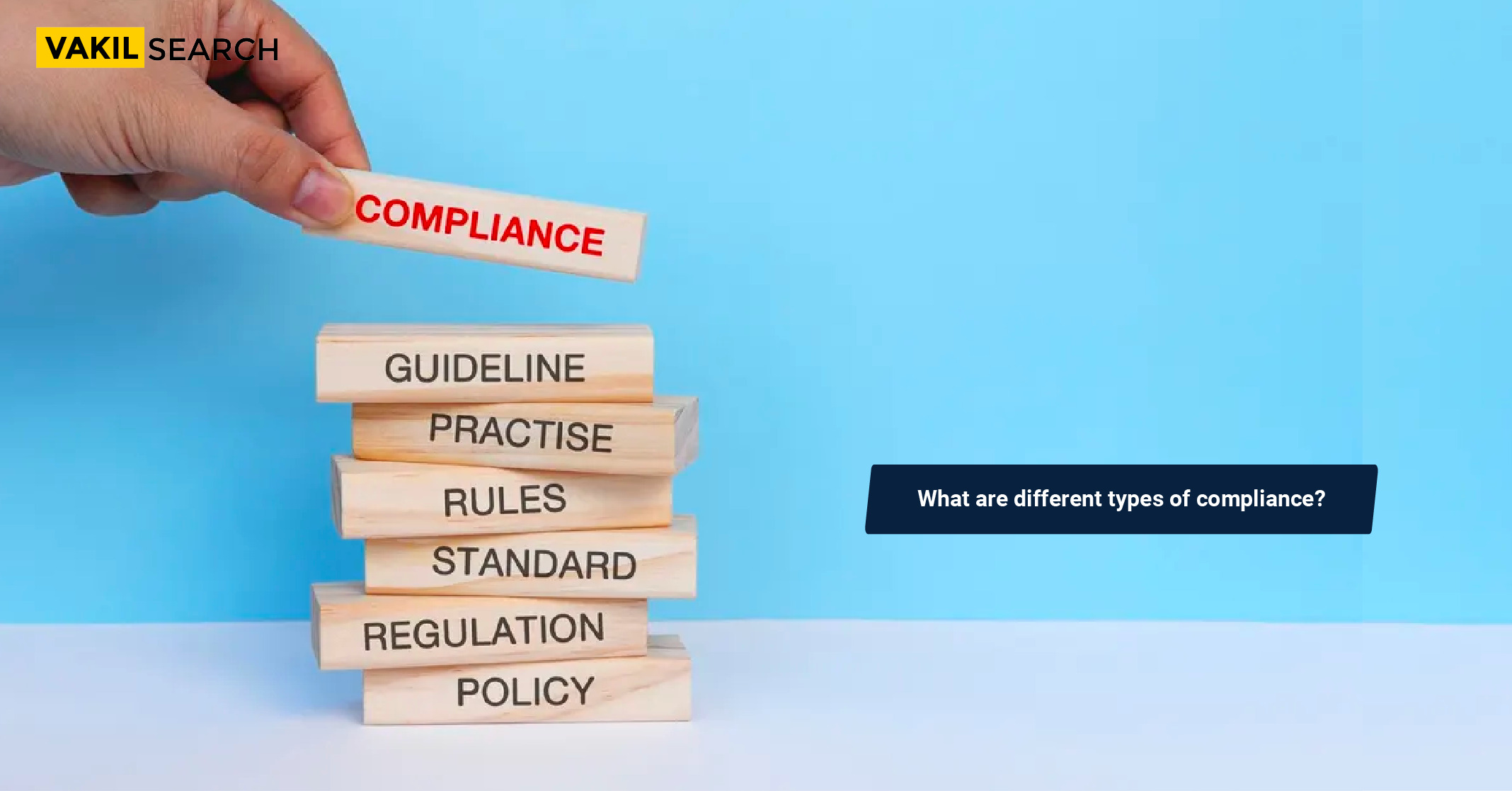Know all the diverse categories of compliance, such as financial statements, data, and industry-specific. Learn how they ensure adherence to rules and regulations.
In the dynamic and interconnected landscape of modern business, compliance has emerged as a pivotal concept that shapes the way organisations operate, thrive, and remain sustainable. Compliance is not a one-size-fits-all concept; instead, it encompasses a multifaceted nature, reflecting the diverse range of regulations, standards, and guidelines that businesses must adhere to. In this blog, we will delve into the various types of compliance, each with its unique significance in a business context. We will explore regulatory compliance, financial compliance, and operational compliance, illustrating the relevance of each through real-world examples.
Types of Compliance:
1. Regulatory Compliance
Regulatory compliance is perhaps the most well-known type of compliance and involves adhering to laws, rules, and regulations set by governmental bodies, industry-specific organisations, or international standards. Regulatory compliance ensures that businesses operate within the boundaries of the law and maintain ethical and responsible practices. Failure to meet regulatory compliance can result in severe legal consequences and reputational damage.
Example: Consider a pharmaceutical company that manufactures and distributes medications. It must comply with stringent regulations imposed by the Food and Drug Administration (FDA) to ensure product safety and efficacy. Violating these regulations could result in product recalls, lawsuits, and damage to the company’s reputation.
2. Financial Compliance
Financial compliance focuses on the accurate and transparent reporting of an organisation’s financial activities. It encompasses adherence to accounting principles, tax regulations, and financial reporting standards like Generally Accepted Accounting Principles (GAAP) or International Financial Reporting Standards (IFRS). Financial compliance ensures that businesses maintain financial integrity, prevent fraud, and provide stakeholders with reliable financial information.
Example: A publicly-traded company must comply with the Sarbanes-Oxley Act (SOX), which mandates strict financial reporting and internal control requirements. Failure to comply can lead to fines, litigation, and loss of investor confidence.
3. Operational Compliance
Operational compliance relates to the processes and procedures that businesses establish and maintain to meet specific industry standards or internal policies. It involves efficiency, quality control, and risk management. Operational compliance ensures that organisations consistently deliver high-quality products or services while minimising operational risks.
Example: In the aviation industry, airlines must adhere to operational compliance standards set by the Federal Aviation Administration (FAA). Compliance with safety protocols, maintenance procedures, and pilot training requirements is essential to ensure safe operations and prevent accidents.
Calculate startup costs efficiently with our business calculator. Our business setup calculator ensures accurate budgeting!
4. Environmental Compliance
As environmental concerns grow, so does the importance of environmental compliance. Businesses must comply with environmental laws and regulations aimed at reducing their impact on the environment. This includes waste disposal, emissions control, and sustainability initiatives. Non-compliance can lead to fines, damage to the environment, and harm to a company’s reputation.
Example: An industrial manufacturer must adhere to emissions limits and waste disposal regulations set by environmental protection agencies. Failing to do so can result in fines and damage to the environment, leading to a loss of trust among environmentally conscious consumers.
Know about: Business Compliance
5. Data Privacy Compliance
In the age of digitalisation, data privacy compliance has gained paramount importance. Businesses collect and process vast amounts of personal data, necessitating strict adherence to data protection laws such as the General Data Protection Regulation (GDPR) in the European Union or the California Consumer Privacy Act (CCPA). Non-compliance can result in hefty fines and loss of customer trust.
Example: A multinational e-commerce company must ensure that it complies with GDPR when handling the personal data of European customers. Failure to do so can result in fines of up to €20 million or 4% of annual global revenue, whichever is higher.
6. Ethical Compliance
Ethical compliance goes beyond legal requirements and focuses on conducting business with integrity and ethical values. It encompasses fair labour practices, anti-corruption measures, and social responsibility. Ethical compliance helps build trust with customers, employees, and the broader community.
Example: A company may establish a code of conduct that prohibits bribery, discrimination, and child labour, ensuring ethical business practices throughout its global operations.
Conclusion
Compliance is a multifaceted concept, with various types that intersect and shape the way organisations function in today’s complex business environment. Regulatory compliance ensures adherence to legal requirements, financial compliance ensures financial transparency, and operational compliance streamlines business processes. Environmental compliance focuses on reducing ecological impact, data privacy compliance safeguards personal information, and ethical compliance promotes integrity and responsibility.
Each type of compliance plays a crucial role in ensuring that businesses operate responsibly, ethically, and within the bounds of the law. Neglecting any aspect of compliance can result in legal consequences, financial losses, damage to reputation, and, in some cases, the downfall of an organisation. Therefore, businesses must prioritise compliance as an integral part of their strategy, striving to meet and exceed the expectations of regulators, stakeholders, and the public.
In the ever-evolving landscape of business and regulation, staying informed and adapting to changes in compliance requirements is essential for long-term success. Ultimately, compliance is not just about adhering to rules; it is about fostering a culture of responsibility, trust, and sustainability that benefits both businesses and society as a whole. Make sure to get in touch with Vakilsearch for complete compliance guidance.
Frequently Asked Questions
1. What is financial compliance?
Financial compliance involves following regulations and standards to ensure accurate financial reporting and transparency.
2. Are there industry-specific compliance requirements?
Yes, industries like healthcare and finance have unique compliance standards to address sector-specific risks.
3. How does data compliance protect privacy?
Data compliance ensures data handling aligns with privacy laws, safeguarding sensitive information from unauthorised access.
4. Why is environmental compliance important?
Environmental compliance ensures organisations meet environmental regulations, reducing their impact on the ecosystem.
5. What role does IT compliance play in cybersecurity?
IT compliance ensures that technology practices adhere to security standards, safeguarding against cyber threats and data breaches.
Read more,

